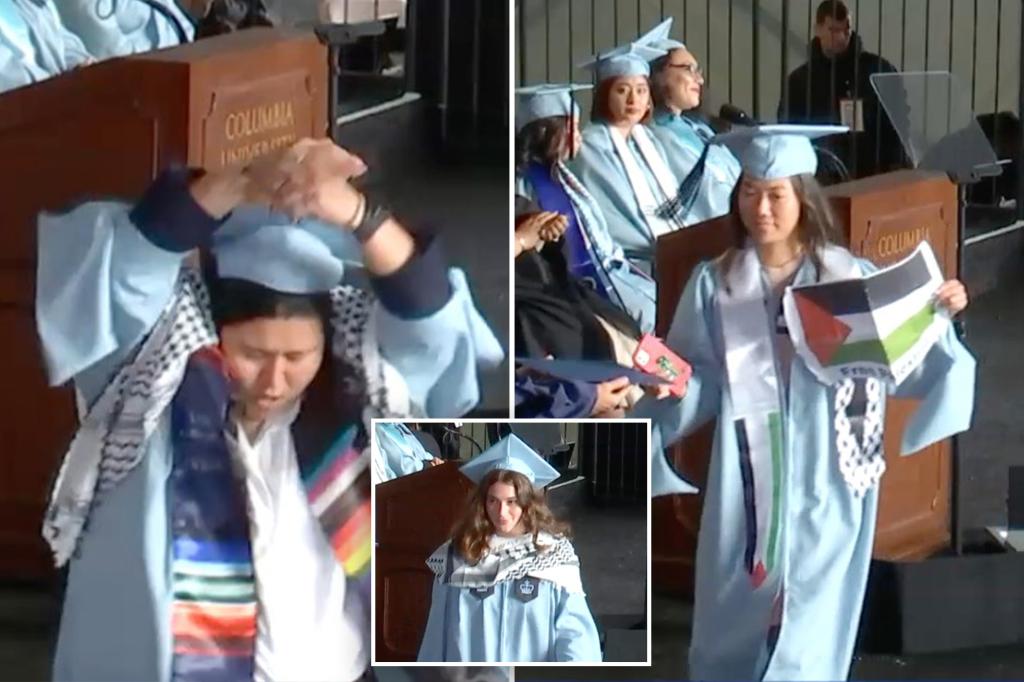Columbia University graduates showcased defiant and disruptive behavior during the Ivy League’s first commencement ceremonies. The students wore zip-tie handcuffs, displayed pro-Palestinian signs, and one student even tore up her diploma on stage. The ceremonies were significantly scaled back due to weeks of violent anti-Israel demonstrations on campus. Disruptive behavior included tearing diplomas, wearing Hamas leader names on graduation caps, and displaying “Free Palestine” signs with zip-tied hands.
The protesting students were seen storming across the platform to accept their degrees, with Tarsis Salome charging forward with her zip-tied hands above her head and tearing her diploma to shreds. Other graduates, such as Maliha Fairooz, Veda Kamra, and Hilary Margaret Elizabeth Ludlow, also made bold displays with pro-Palestinian signs and handcuffed hands. The demonstrations came after Columbia University had to cancel its university-wide commencement due to heightened security concerns following disruptive protests and an illegal takeover of a building on campus.
The decision to cancel the traditional commencement ceremony, which usually draws over 50,000 attendees, was made after consultation with graduating students. The university spokesman cited security concerns as the reason for the cancellation, leading to disappointment among students and officials. As a result, smaller ceremonies are being held at a sports complex about 5 miles away from the iconic South Lawn where ceremonies are traditionally staged. The disruptive behavior during the ceremonies reflects the ongoing tension and controversy surrounding issues related to Israel and Palestine on campus.
The disruptions at Columbia’s commencement ceremonies are a continuation of ongoing protests and confrontations on campus. NYPD had to intervene multiple times to clear out disruptive demonstrators and handle escalating situations during the protests. Over 200 protesters were arrested during these incidents, leading to heightened security concerns and ultimately the decision to cancel the university-wide ceremony. The demonstrations by the graduating students highlight the passionate views and activism present at Columbia University regarding social and political issues like the Israeli-Palestinian conflict.
The demonstrations by the graduating students have garnered attention and sparked debates about freedom of expression, appropriate behavior at formal events, and the role of activism in academic institutions. The displays of defiance, symbolism, and protest at the commencement ceremonies reflect the diverse perspectives and strong convictions held by students at Columbia University. The disruptive behavior, though controversial, can be seen as a form of peaceful protest and expression of deeply held beliefs.
The aftermath of the disruptive commencement ceremonies at Columbia University underscores the ongoing challenges and tensions within the university community. The decision to cancel the traditional ceremony and the subsequent disruptions during the smaller ceremonies reveal the complexities of addressing security concerns, student activism, and academic freedom. Moving forward, discussions and reflections on the events at the commencement ceremonies will likely continue within the Columbia University community and beyond, highlighting the importance of dialogue, understanding, and respectful engagement in addressing contentious issues within academic settings.


